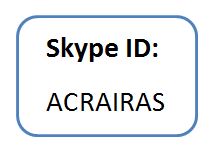Annual ACRA filing requirements for businesses in Singapore
Every company registered and operating in Singapore is required to make annual ACRA filing for its returns. ACRA (Accounting and Corporate Regulatory Authority) is the national body that regulates the business organizations in Singapore.
Before filing, you need to know the filing requirements. Thankfully, compared to other countries, the requirements are fairly easy to meet. It is important that you remember the datelines as well as other simple requirements that will keep you within the confines and in compliant with the company law in Singapore.
Making an annual return in Singapore is not difficult if you have a SingPass or CorpPass. You can do it online by filling electronically every year. What should you know about filing your returns with ACRA? Keep reading.
When should you do ACRA filing?
Every company that has been incorporated in the Republic of Singapore needs to hold its annual general meeting first and thereafter, they can file their annual returns. This should be completed in 30 days after the AGM has been held. Among the required details would be the company name, its address, registration number, the type of company, its activities and a summary of the share capital (paid up) etc. Take note that you would also need a set of audited or unaudited financial statements report done before you can file and lodge the annual return with ACRA.
ACRA filing of annual returns for various types of Companies
Every company including public companies, private company, and where an exempt private company has the required maximum of 20 shareholders and there is no corporation that is interested in its shares such as normal EPC or small EPC all have to do ACRA filing of annual returns.
The requirement here in Singapore is that a company should submit its ACRA filings in 30 days after the AGM. There is no exception to a newly incorporated company. They are not exempted by law, and should also hold their first AGM in 18 months since incorporation.
Different companies has different requirements, and therefore file returns differently with ACRA. For example, a dormant EPC still needs to file its returns without having to include and prepare accounts. It also does not need to audit accounts since there has been no transactions and the company is dormant. However, if an EPC insolvent, then it will have to submit its financial accounts/reports in XBRL format. If it is solvent, then it can make a declaration of being solvent, where the company is able to pay its debts when it falls due.
A non-EPC company must audit accounts and file accounts in XBRL too. A private company in Singapore has its maximum shareholders usually limited to 50.
For a public company, it could have more than 50 shareholders. It could be a company that is listed on the SGX or if that is limited by guarantee, it must audit its accounts and must file accounts as well.
For a small EPC, you do not need to audit accounts or to attach accounts for ACRA filing. However, a set of accounts must still be prepared and submitted to ACRA upon request.
Audit Exemption although ACRA filing is still required
Since July 1, 2015, small companies have been exempted from audit. If your company falls under the following, it is considered a small company that needs not do audit of accounts:
- Less than S$10 million annual revenue
- Has less than 50 employees
- Total assets are S$10 million or less
If your company fulfills just two out of three of these criteria, then it is a small company. ACRA filing is still mandatory. Should you require assistance, professional firms such as J Accounting Services will be able to assist you.




